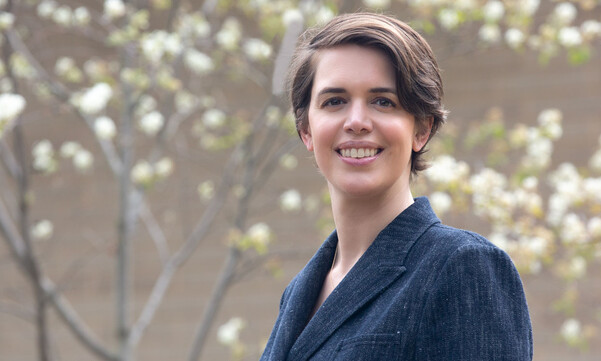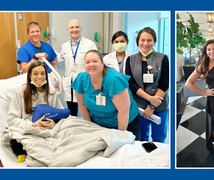If your GI doctor finds and removes precancerous polyps during your colonoscopy, it could keep you from developing life-threatening colon cancer.
To make sure colonoscopies are as effective as possible, gastroenterology professional associations have recommended four ways to measure how well doctors and hospitals perform the screening exams. Before you schedule your colonoscopy, Duke gastroenterologist Ziad Gellad, MD, MPH, recommends you ask these questions.
1. What’s Your Adenoma Detection Rate?
Adenoma is the medical term for polyps, or growths, in the colon that could turn into cancer. This measure looks at what percentage of average-risk patients ages 50 or older are found to have at least one adenoma during their screening colonoscopy. “The higher the percentage, the greater the chance of preventing cancers,” said Dr. Gellad. The professional societies have set 25% as the benchmark. For the 2017-2018 academic year, Duke GI doctors averaged 43%, well above that goal.
2. How Often Do You Reach the Start of the Large Intestine?
If your doctor is able to reach the start of your large intestine during your colonoscopy, he or she will be better able to find any polyps located in the cecum, the pouch where your large and small intestines meet. The GI societies’ goal for this measure is 95% of the time. For the 2017-2018 academic year ending June 30, 2018, Duke GI doctors reached the start of the large intestine in 96% of colonoscopies.
3. How Often Does Poor Preparation Lead to Incomplete Exams?
While colonoscopy can be a lifesaving exam, no one looks forward to the preparation, which usually involves a day or two of a liquid diet and laxatives. Having to repeat the exam sooner because the preparation didn’t clean the bowel well enough can be doubly unpleasant. It will be up to you to follow the prep instructions carefully -- but it can also help to know whether your doctor’s office has a good track record of helping patients understand how to prep effectively. The goal for this measure is to have good enough prep to follow recommended surveillance guidelines 85% of the time. Duke GI patients averaged 89% in the 2017-2018 academic year.
4. When Should I Return for a Follow-Up Exam?
“Most patients don’t need another exam for 10 years,” said Dr. Gellad. That’s what your doctor is likely to recommend if your colonoscopy doesn’t reveal any polyps and you don’t have other risks for colon cancer, such as a family history of the disease. That said, your doctor could recommend a repeat exam sooner if your colonoscopy is incomplete -- either because the prep was poor or the doctor was unable to reach the start of the large intestine. The goal is for GI doctors to be able to recommend a 10-year follow-up to patients at average risk 90% of the time or more. For the 2017-2018 academic year, Duke GI doctors recommended 10-year follow-up 95% of the time.
And Two "To Do" Items for You
Once you've scheduled your screening, don't forget to bring the results of any past colonoscopies with you to your appointment. Knowing your history will better enable your doctor to evaluate your current results and recommend follow-up. And be sure to follow the prep instructions carefully.





